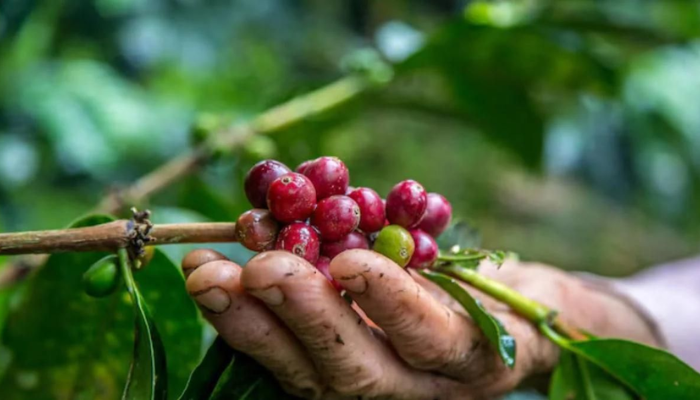
Agile project management of coffee internationally in Honduras is revolutionizing the way coffee farmers, exporters, and global businesses operate. This innovative approach focuses on adaptability, efficiency, and collaboration, allowing stakeholders to respond swiftly to market demands, climate changes, and consumer preferences. Honduras, a leading coffee producer, has embraced Agile methodologies to streamline operations and ensure high-quality coffee reaches global markets. This article explores how Agile principles are applied to the Honduran coffee industry, its benefits, and challenges, and provides insights into the future of international coffee trade management.
The Role of Agile Project Management in the Honduran Coffee Industry
Agile project management emphasizes iterative progress,agile project management of coffee internationally in honduras flexibility, and close collaboration among stakeholders. In Honduras, where coffee production is a critical economic driver, Agile methodologies enable farmers and exporters to quickly adapt to shifting global trends. Traditional project management models often struggle with delays and rigid structures, making Agile a game-changer in coffee logistics.
By implementing Agile frameworks such as Scrum and Kanban, coffee producers in Honduras can improve efficiency at various production stages. Smallholder farmers, cooperatives, and exporters utilize Agile sprints to assess quality, optimize supply chain logistics, and meet international standards. This approach reduces waste, enhances transparency, and ensures timely delivery of premium coffee to global markets.
Enhancing Supply Chain Efficiency with Agile Practices
The global coffee supply chain is complex,agile project management of coffee internationally in honduras involving multiple intermediaries from farmers to exporters and international buyers. Agile methodologies streamline this process by improving communication and collaboration across the entire value chain. In Honduras, Agile-driven supply chains allow stakeholders to quickly respond to market fluctuations, climate impacts, and transportation disruptions.
For instance, real-time data tracking through Agile software tools ensures that coffee shipments adhere to international quality standards. Agile frameworks also enable producers to rapidly iterate on packaging, branding, and marketing strategies, ensuring that Honduran coffee remains competitive in international markets. These efficiencies reduce operational costs and enhance the overall profitability of coffee exports.
Sustainable Coffee Production Through Agile Methodologies
Sustainability is a key concern in the coffee industry, with increasing global demand for ethically sourced and environmentally friendly coffee. Agile project management promotes sustainable practices by fostering adaptability and continuous improvement. In Honduras,agile project management of coffee internationally in honduras coffee farmers use Agile principles to integrate eco-friendly farming techniques, such as organic cultivation, shade-grown coffee, and water conservation strategies.
Agile-driven environmental monitoring allows stakeholders to assess and mitigate the impact of climate change on coffee production. Regular sprint reviews enable farmers to adapt to weather patterns and adopt resilient farming practices. Furthermore, Agile frameworks help cooperatives and organizations ensure compliance with sustainability certifications like Fair Trade and Rainforest Alliance, which are critical for accessing premium international markets.
Challenges and Solutions in Agile Coffee Project Management

While Agile project management offers numerous benefits to the Honduran coffee industry, certain challenges must be addressed.agile project management of coffee internationally in honduras One major hurdle is the cultural shift required to embrace Agile methodologies. Many traditional coffee producers are accustomed to linear production cycles and may resist adopting iterative processes.
To overcome these challenges, training programs and workshops are essential. International partnerships with Agile experts can help educate local farmers and exporters on Agile best practices. Additionally, implementing user-friendly Agile tools tailored to the coffee industry simplifies adoption. Encouraging collaboration between coffee cooperatives and global buyers fosters trust and ensures smoother transitions to Agile frameworks.
The Future of Agile Project Management in the Honduran Coffee Sector
As the global coffee industry continues to evolve, Agile project management is poised to play an even greater role in Honduras. Emerging technologies such as artificial intelligence, blockchain, and predictive analytics complement Agile methodologies,agile project management of coffee internationally in honduras providing enhanced decision-making capabilities.
Looking ahead, Honduran coffee producers are expected to integrate more digital solutions for tracking and optimizing coffee quality. Agile methodologies will also facilitate closer collaboration between farmers and international brands, enabling a more responsive and consumer-driven coffee industry. By staying adaptable and embracing innovation, Honduras can strengthen its position as a leading coffee exporter in the global market.
Conclusion
Agile project management of coffee internationally in Honduras is transforming the industry, making it more resilient, efficient, and sustainable. By implementing Agile frameworks, coffee producers can quickly adapt to market trends, enhance supply chain operations, and promote environmentally friendly practices. Despite challenges, Agile methodologies offer significant advantages, ensuring that Honduran coffee remains competitive on the global stage. As technology continues to advance, the future of Agile in the coffee sector looks promising, paving the way for a more dynamic and sustainable industry.
FAQs
1. What is Agile project management, and how does it apply to coffee production in Honduras?
Agile project management is an iterative approach that emphasizes flexibility, collaboration, and continuous improvement. In Honduras,agile project management of coffee internationally in honduras it helps coffee producers optimize supply chains, improve efficiency, and respond to market demands quickly.
2. Why is Honduras significant in the global coffee industry?
Honduras is one of the world’s top coffee producers, known for its high-quality Arabica beans and sustainable farming practices, making it a key player in the international coffee market.
3. How does Agile improve supply chain management in coffee exports?
Agile methodologies enhance communication, streamline logistics, and ensure real-time tracking, reducing inefficiencies and improving the overall export process.
4. What are the main challenges of implementing Agile in the Honduran coffee industry?
Challenges include cultural resistance, lack of training, and the need for industry-specific Agile tools to facilitate seamless adoption.
5. Can small coffee farmers in Honduras benefit from Agile methodologies?
Yes, Agile principles help small farmers improve productivity, access better markets,agile project management of coffee internationally in honduras and adopt sustainable farming practices through iterative planning and collaboration.
6. How does Agile contribute to sustainable coffee production?
Agile promotes environmentally friendly farming techniques, better resource management, and continuous adaptation to climate change.
7. What role does technology play in Agile coffee project management?
Technology, including blockchain and AI, enhances transparency, decision-making, and efficiency in the coffee supply chain.
8. How does Agile impact coffee pricing and quality control?
By ensuring faster adjustments to quality standards and market demands, Agile helps maintain consistent coffee quality and competitive pricing.
9. Are there any international brands using Agile for their coffee supply chains?
Yes, major coffee brands and cooperatives increasingly adopt Agile methodologies to improve their sourcing and distribution strategies.
10. What is the future of Agile project management in coffee production?
The future includes greater digital integration,agile project management of coffee internationally in honduras AI-driven analytics, and more sustainable farming innovations, ensuring a responsive and competitive coffee industry.





